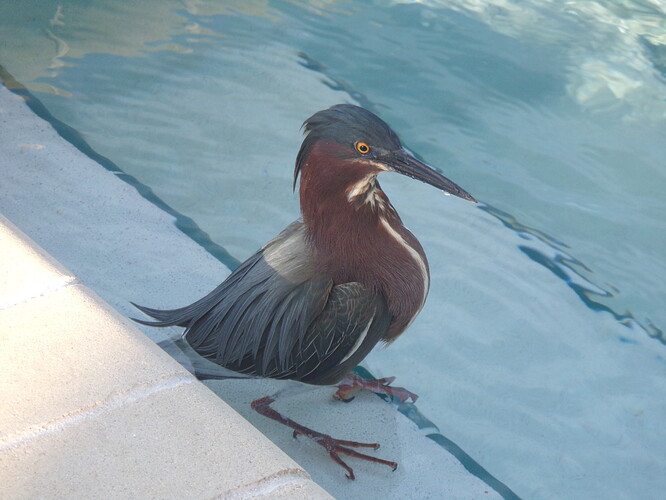as long as the birds are not using the pool as their sole source of water, i would think that drinking from a pool occasionally would not be a big deal. i swallow water sometimes from the pool, and mostly i’m fine. and anyway, how are you going to stop a bird from drinking from the pool if that’s what it wants to do?
my understanding is that birds can spread disease to humans for sure, and i wouldn’t encourage it, but most healthy birds in a big pool are probably relatively benign to your health – probably no worse than a poopy human child or dog swimming in the pool – but i have no scientific evidence to back that up.
i think if you see ducks or geese swimming a long time in the pool, i would clean out feathers and poop (with appropriate PPE), and wait an hour or so for the sun and the chemicals to sanitize the pool a bit, since they’re big birds and, like chickens, are known to potentially carry diseases that can affect humans.
if you see a dead bird in the water, fish it out (with appropriate PPE), and maybe give a an appropriate grace period, too.
i think i would be less concerned about most other birds, unless you had, say, a bunch of pigeons or house sparrows pooping directly into a poop from, say, a branch hanging over the pool. they can carry nasty diseases, too, but i think chemicals and sun would take care of the fungi that are the main source of the issue here.
apparently grackles like to drop off their baby poop in pools. so if that happens, maybe think about putting up stuff around the pool to deter grackles.
here’s guidance from from more reputable sources:
